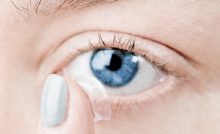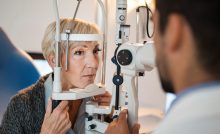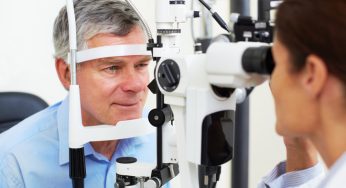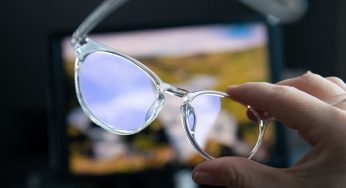Pro Talk: Answering Top Questions About Presbyopia
The aging process can cause changes to many parts of your body, and your eyes are no exception. When you reach your 40s, you may notice a decline in your overall visual capacity, especially when engaging close-range tasks. This condition is called presbyopia and is a normal part of the aging cycle. In today’s post, your expert eye doctor answers some frequently asked questions about this refractive error:
What Causes Presbyopia?
Presbyopia is a refractive error that develops when your eyes undergo structural changes as a result of the aging process. Your natural lenses, in particular, may lose their flexibility as you age. This can impair the light-focusing process, resulting in visual impairments.
What Are the Symptoms?
Degeneration of your lenses may disrupt the light-bending process in your eyes, causing difficulties when looking at close-range objects. If you are in your 40s or older and find yourself holding reading materials at a distance to read them properly, you may have presbyopia. Your trusted optometrist explains that you may also experience headaches when engaging in close-range tasks like cooking or gardening.
How Is It Different From Hyperopia (Farsightedness)?
While presbyopia and hyperopia both cause problems with close-range vision, the underlying causes are different. Presbyopia occurs when your eyes’ lenses lose their elasticity, failing to focus light on the retina, while hyperopia develops when the cornea becomes abnormally rigid or the shape of the eye is shorter than usual. These structural irregularities cause the received light to focus behind the retina rather than directly on it.
How Is Presbyopia Managed?
After confirming presbyopia through a comprehensive eye exam, we generally recommend wearing bifocal eyeglasses or contact lenses. They contain lens powers for both near- and far-range viewing ease. Progressive lenses work the same but without the visible line separating the powers. We may also suggest using multifocal lenses that allow clear vision at varying distances.
If you have any further questions about presbyopia, call us at (703) 938-7633 or complete our form. We see patients from Vienna, Reston, Fairfax and McLean, VA.
Recent Posts
What Is the Optometrist’s Role in Glaucoma Co-Management?
Glaucoma is a leading cause of irreversible vision loss worldwide, known insidiously as the "silent…
Who Is the Ideal Candidate for Ortho-K?
For many individuals grappling with the inconvenience of glasses or the discomfort of contact lenses,…
Love Your New Glasses? Here’s How to Make Them Last Longer
Opting for a new pair of glasses not only marks an investment in your vision…
The Link Between Neck Pain and Your Vision
Neck pain is a common ailment that affects many individuals, causing discomfort and restricting daily…
Preparing for Your Eye Exam: Tips for Accurate Results
An eye exam is an essential aspect of maintaining optimal eyesight and overall eye health.…
How Stress and Your Mental Well-Being Can Impact Vision
In the bustling and picturesque city of Vienna, VA, Vienna Eyecare Center stands as a…











